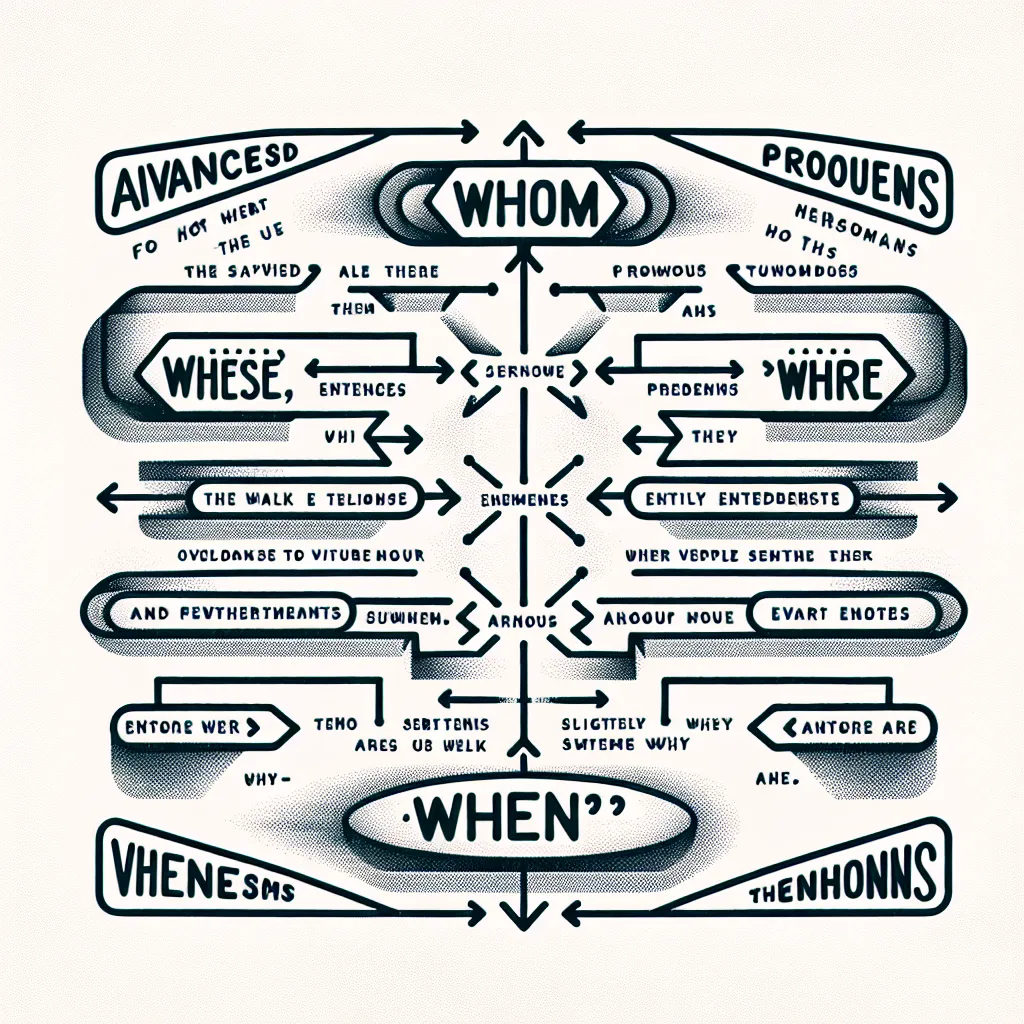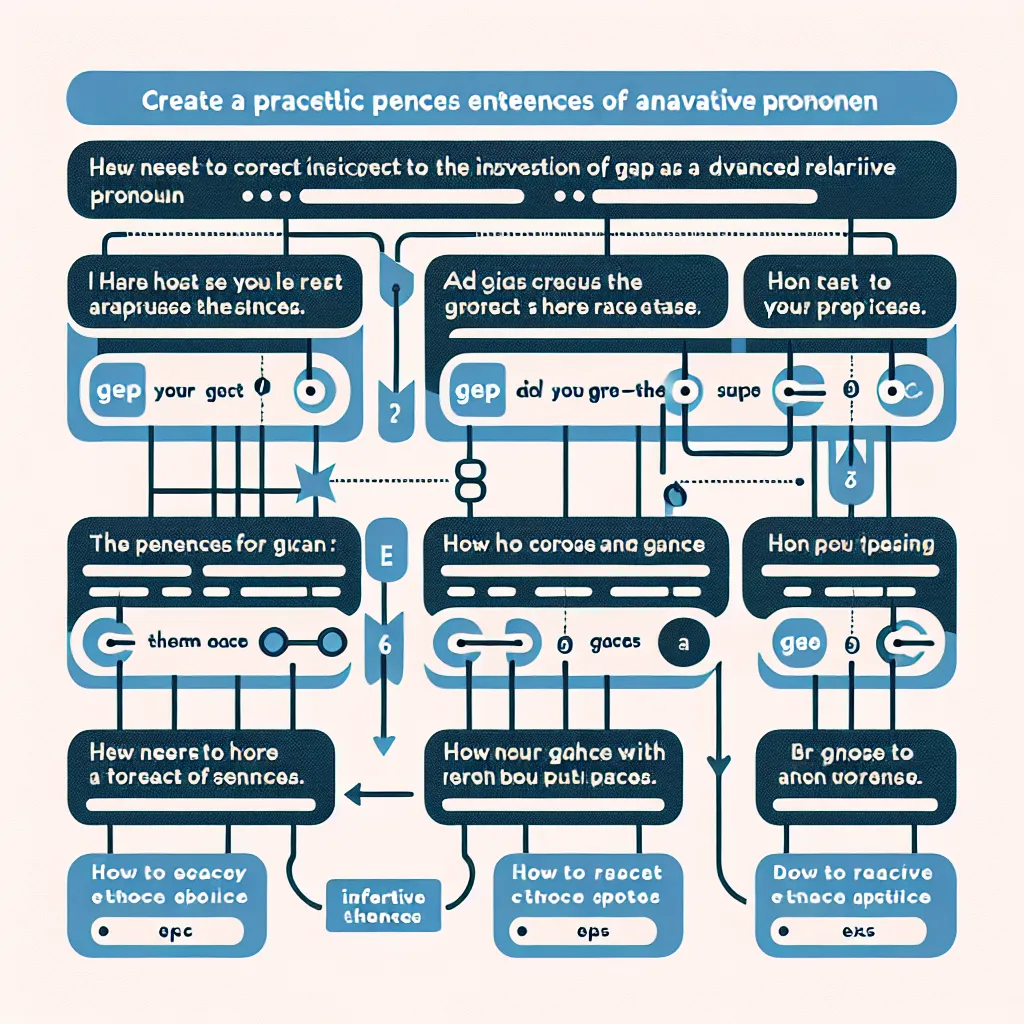Relative pronouns are essential elements in English grammar, allowing us to connect ideas and provide additional information about nouns in a sentence. Mastering advanced relative pronouns can significantly enhance your writing and speaking skills, making your language more sophisticated and precise. This guide will explore the intricacies of advanced relative pronouns and provide practical tips to help you use them effectively.
Understanding Advanced Relative Pronouns
Advanced relative pronouns go beyond the basic “who,” “which,” and “that.” They include less common forms such as “whom,” “whose,” “where,” “when,” and “why.” These pronouns allow for more complex sentence structures and nuanced expression of ideas.
Why Are Advanced Relative Pronouns Important?
Advanced relative pronouns are crucial for:
- Precision in writing and speaking
- Expressing complex ideas clearly
- Demonstrating a high level of English proficiency
- Improving scores in language proficiency tests like IELTS and TOEFL
 Advanced Relative Pronouns Diagram
Advanced Relative Pronouns Diagram
Key Advanced Relative Pronouns and Their Usage
1. Whom
“Whom” is the object form of “who” and is used in more formal contexts.
Example:
- “The candidate whom we selected has excellent qualifications.”
Tip: If you can replace the pronoun with “him” or “her,” use “whom.”
2. Whose
“Whose” indicates possession and can refer to both people and things.
Example:
- “The company whose products we use is known for its innovation.”
Tip: “Whose” can replace “of which” in many cases, making sentences more concise.
3. Where
“Where” is used to refer to places.
Example:
- “The city where I grew up has changed significantly.”
Tip: Use “where” instead of “in which” when referring to locations.
4. When
“When” is used for time references.
Example:
- “The year when the treaty was signed marked a turning point in history.”
Tip: “When” can often replace “in which” or “on which” for time expressions.
5. Why
“Why” is used to give reasons or explanations.
Example:
- “We don’t understand the reason why the project was cancelled.”
Tip: “Why” can often be omitted in informal speech, but including it adds formality and emphasis.
Common Mistakes and How to Avoid Them
-
Misusing “who” and “whom”
- Incorrect: “The person who I met yesterday is a famous author.”
- Correct: “The person whom I met yesterday is a famous author.”
-
Overusing “that” instead of “which”
- Incorrect: “The book that I borrowed, that was written by a renowned author, is fascinating.”
- Correct: “The book that I borrowed, which was written by a renowned author, is fascinating.”
-
Forgetting to use commas with non-restrictive clauses
- Incorrect: “My brother who lives in New York is visiting next week.”
- Correct: “My brother, who lives in New York, is visiting next week.”
Practice Exercises to Master Advanced Relative Pronouns
- Fill-in-the-blank exercises
- Sentence combining tasks
- Error correction activities
- Writing prompts that encourage the use of advanced relative pronouns
For more practice on related topics, check out our guide on how to use relative adverbs.
Tips for Mastering Advanced Relative Pronouns
- Read extensively: Exposure to well-written texts will help you internalize correct usage.
- Practice regularly: Incorporate these pronouns into your daily writing and speaking.
- Use grammar checkers: Tools like Grammarly can help identify errors and suggest improvements.
- Seek feedback: Have native speakers or advanced learners review your writing.
- Study in context: Analyze how these pronouns are used in academic papers and literature.
For more advanced grammar tips, especially for academic writing, visit our article on advanced grammar for conference papers.
 Advanced Relative Pronoun Practice
Advanced Relative Pronoun Practice
Conclusion
Mastering the use of advanced relative pronouns is a key step in achieving a high level of English proficiency. By understanding their functions, practicing regularly, and being mindful of common mistakes, you can significantly improve your language skills. Remember, the goal is not just to use these pronouns correctly, but to use them effectively to enhance your communication.
For a deeper dive into pronoun usage, including personal and demonstrative pronouns, check out our comprehensive guide on how to master the use of pronouns in English.
Keep practicing, stay curious, and don’t hesitate to challenge yourself with increasingly complex sentence structures. With time and effort, you’ll find yourself using advanced relative pronouns with confidence and precision.




